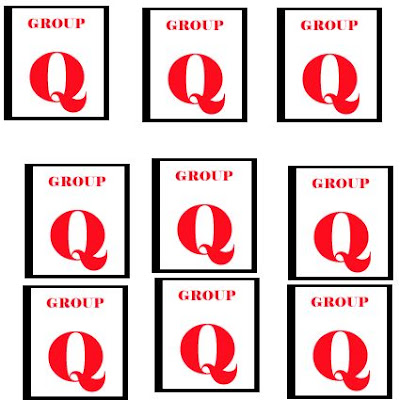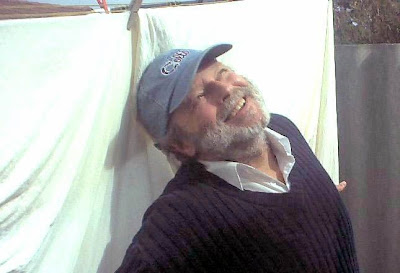
Tuesday 13 November 2007
Tuesday 21 August 2007
Who is Dambudzo Marechera and what does he mean to me?
The question might well be asked, and the most honest answer is that we were both children of our parents. Black and white we may be, but neither of us decided to afflict war on each other. That was a decision undertaken by those who represented our parents. Marechera and I were both in some sense born on the wrong side of the fence. The global community was for the black guerilla fighters and against the white oppressors, and yet, in actual fact, they were taking sides with one or other of our parents. We – the children of our parents – were never asked about our views. We were never given a choice. So, it was that Marechera, child of his parents, grew up struggling against the tide. Offered an education in English, he was keen to follow through in order to get out of his ghettoised environment. Meanwhile, his parents raged against him learning English, causing him to burn his school books in anguished confusion or protest. I, on the other hand, the child of my parents, was caused to emigrate a few years after the guerilla war had ended with the country falling into the hands of a black majority. Being the child of my parents, the war didn’t end there for me. In fact, it was only just beginning. For little did I realise that sacrifices do not go unrequited. The Rhodesian war only began for me, upon migration to Australia, when I had come of age. I was 16 at the age of my Zimbabwean exit. It was the year 1984. We had barely found our feet in an altogether different culture, when it was already time for me to requite the parental sacrifice.
It began with condemnation that I was both socially lost on one hand, and that I was adapting to what must have been presumed to be the nefarious and decadent values of the first world, on the other. Poor adaptation and the cultural values that I had adopted through partial assimilation meant that all my parents’ sacrifices to maintain an ideological purity had been entirely in vain. I was not growing up with the values that they had battled for against Dambudzo’s parents. So, I was worse than a traitor, from my parents’ point of view. I was somebody who was undoing history – and undoing them, in the process. Each difficult step I made towards adaptation to the new and foreign culture earned its punishment. To break me down and make me repent was my parents’ goal – the unspoken agenda they had against my growing up in ways which hadn’t been prescribed.
This brings me to why I relate so much to Marechera. Reading his works, I am made aware of how the simplicities of our parents – and indeed of the global community, in supporting one faction of our parents against another parental faction – have led to intellectually impoverished perspectives. Marechera and I have both revolted against moral, social and political oversimplifications, in favour of a level of understanding that takes into account the human elements of suffering, and what it means to be historically (and socially) contingent beings – the children of our parents. Reading Marechera’s works, I encounter the complexities of emotional life, in forms which do not compromise the meanings of experiences, in order to please the powers that be. Marechera writes in a complex manner and this complexity is his integrity, for as he says:
The tyranny of straightforward things is more oppressive and more degrading than such idle monstrosities as life and death, apartheid and beer drinking, a stamp album and Jew-baiting. One plus one equals two is so irrefutably straightforward that the unborn child can see that even if man was wiped off the face of the earth one plus one would always and forever-equal two. [92]
Sunday 27 May 2007
Uebermensch and The Survivor Personality
maybe -- but of course there are many people who also have chemical imbalances.
Furthermore, the writer of this piece doesn't seem to understand Nietzschean irony.
Tuesday 8 May 2007
Tuesday 24 April 2007
Friday 20 April 2007
you are my brain, therefore we need a lobotomy!
Saturday 7 April 2007
parody of the misogynist ideology of hate
Sunday 25 February 2007
Wednesday 31 January 2007
seeing too much.
I am walking along, and I am
thinking, "How to envisage myself smaller? How to see the little, tapestry-fine
needlework, when my eyes are already too ....big and blurry. Something is surely
going on: Shadowy shapes form themselves at the periphery of my vision. They
draw to them: downwards! Top the side! And upwards, too! –––––––– but by the
moment I am looking at them, I realise that a full on stare cannot hold them in
focus––––––––only the peripheral vision will. I am walking along and I am almost
thinking: there is something I am missing. I dare not think this thought, as I
am feeling numb. Numbness is a relief. I need to feel myself small and
nimble––––––––so I visualise something small and nimble, but my imagination is
sluggish, due to being holstered into something that it never wanted any part
in. Because of its resistance to the situation, my imagination has shut down. I
walk along––––––––and I am a robot. I am a cold robot––––––––for the wind is
gusty, but I’m dressed quite warm. I am a solemn robot –––––––– for I have a
mission to perform. I walk along–––––––– my body is a walking pole. I walk
along, after I am dead. By rights, I should not be walking here –––––––– it is
too stark. Birds are the only sign of life and nobody notices them. It is the
schoolyard, grey before dawn. I smile at people –––––––– the cleaners. But, they
seem like machines, to me, and I cannot imagine what motivates them. I smile
because they are the rules. Because nothing makes sense, I show ‘professional
courtesy’, because I am professional. Consciously I eliminate a frown; smoothed
out brow, and courtesy, intact. The crows know that I am. They are the only
truly living people, in cackling fits, in the sky -- here -- who know that I am
visiting a cemetery here, filled only with dead hopes and things that cannot be
expressed. Smiling, smiling, smiling, through the professional courtesies. If I
express non-machine like tendencies they are translated into a sequence of
whispering fits, which have consequences which never end. Like a zit under a
magnifying glass, the private moment of distress becomes a public catastrophe,
in no time. The public good has to be taken care of, always, so that nothing
must go unreported. Every bit of information caught is ‘shared’. And so: I feel
myself being sucked up into half formed feelings and ideas of cannibalism. I am
chewing on my own flesh and the poisons are coming out of my fat. I am chewing
my own muscle fibre and I feel bad. There is a warm, sick feeling of my own
being as a child, whirring -- plaintively -- around my head like a spotted,
psychedelic, sick, phantasm. It fills the sky, and blocks out everything, except
the crows. I feel like I am now devouring it. I am eating my life bit by bit,
minced, raw, and without form. A sickening ooze of warm blood develops around my
mouth –––––––– and encrusts there. I feel I am bobbing around on an ocean, and
I’m short of nourishment, but I have a life raft. For the first time I am
grateful to ‘professional courtesy’ for not noticing, or registering my
distress. Consequently, I am overly grateful and loquacious in extolling the
many and wondrous virtues of ‘professionalism’. "It is a great thing!" I say.
"And, a truly magnificent thing!" I extol the virtues of my "would-be rescuers"
who condescend to me because I cannot kill them, just because I do not have the
nerve, nor energy, to obliterate them.
Tuesday 23 January 2007
and ever, amen!
[after a very long interaction with Mike about sports..}
"So, Jen, what are you up to these days? Did you ever get going with that course you were going to do?"
Me: Yes. I've made a lot of progress with it, actually.
"Oh. The last time I heard you were waiting for something to start."
Me: Yes, it's like that in academia. Always waiting for something...
"I know all about that! My work blah blah blah blah blah."
Me: gets up and walks off to the kitchen. Looks for something to eat. Comes back, at a leisurely pace and sits down again after 5 minutes.
"So, what was the course you were doing anyway?"
Me: Have a guess!
"It was, er...Masters or something wasn't it?"
Me: No. Try again.
"...er..."
Me: You get two more guesses. If you fail both, you're out!"
Mike: I'll give you a clue: It's a doctorate.
"Oh, a doctorate! What is it in?"
Me: English and communication studies.
"Ah I see."
Me: Yes, I didn't expect you to already have this information, due to my small female brain!"
"[softening tone as if to acknowledge the implicit truth of a self-deprecating statement]... Yes, well. [As if to imply, "but what can anybody really do?"] So!..... MIKE.....!."
-
Perhaps even the majority of people absolutely have a reading and perception problem or just want to be something they are not. I just rec...
-
It's very important to find the central points from which ideas are being disseminated, if one wants to have a chance to change the dire...
-
Wouldn’t a Matriarchal Society Be Great? | Clarissa's Blog It's very bizarre essentialism. The 19th Century European notion -- or ...

